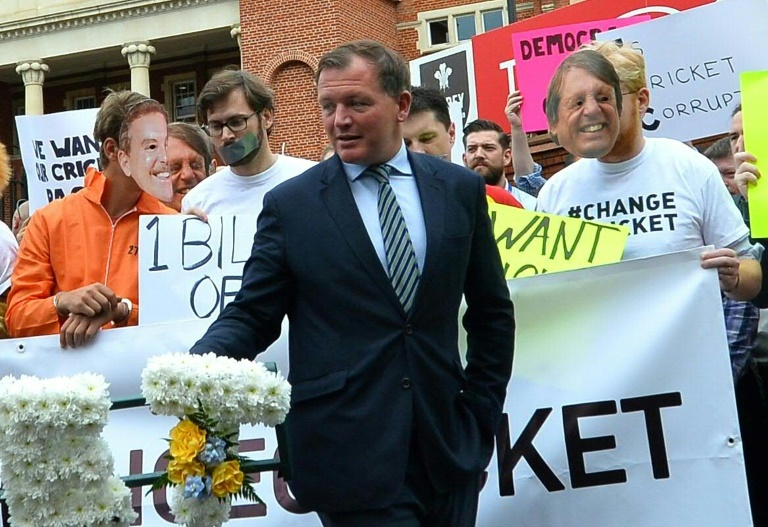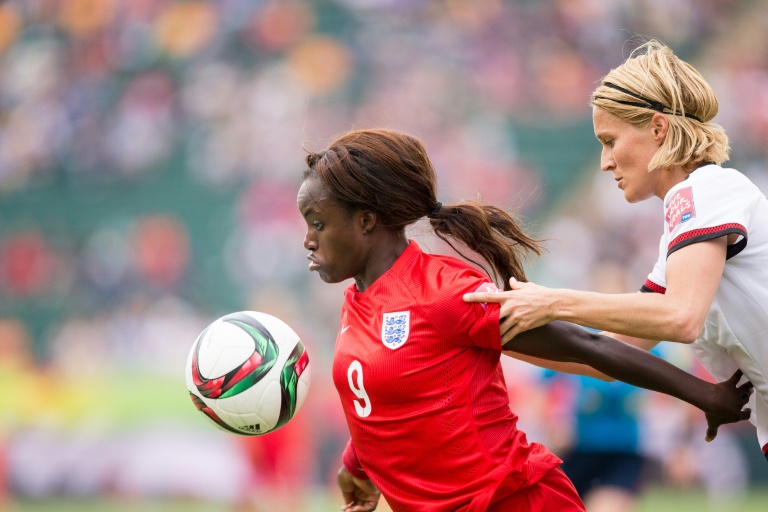Top 10 stories of the day: Eskom explains load shedding | SANDF officer slams politicians | ANC member’s fight against Mashatile
Damian Collins, chairman of the Commons digital, culture, media and sports parliamentary committee, told AFP that people often find it necessary to go outside their sport to get their voices heard.
Collins’s committee recently delved into racism and bullying allegations made by England women’s international footballer Eni Aluko against her then manager Mark Sampson during a wide-ranging probe into sport governance.
During an embarrassing grilling, MPs pulled apart the Football Association’s handling of the allegations that preceded Sampson’s dismissal in September, which was related to a historic safeguarding investigation into his conduct while in a previous job.
“Eni Aluko makes damaging allegations and the FA fail to set up a proper investigation,” said Collins. “Even their internal one, they closed it down before they conducted a proper investigation.
“It is hardly surprising Aluko didn’t think it was satisfying nor indeed the lawyer brought in to conduct another investigation.
“It took a parliamentary committee to expose this and make the FA confront the fact that they don’t have a whistleblower policy or proper set-up to confront these allegations.”

British MP Damian Collins (pictured, C), chairman of the Commons digital, culture, media and sports parliamentary committee, told AFP that people often find it necessary to go outside their sport to get their voices heard
Speaking to AFP at his Westminster office, Collins said the job of the committee is not to investigate individual cases but to ask whether sporting bodies are doing what they can to protect and look after whistleblowers and to investigate and act on their concerns.
“We have found they are massively lacking,” he said. “People are becoming so frustrated they don’t feel safe pursuing their complaints. They don’t know who to go to and if they do they aren’t properly investigated.
“Some are in despair, some have gone to investigative journalists which has forced bodies to do something and some of them have come to us.”
– ‘Parliamentary privilege –
At the end of last year, as part of an inquiry into combating doping in sport, British cycling bosses were questioned by MPs over the use of therapeutic use exemptions in the sport after medical records for British cycling great Bradley Wiggins were leaked.
Collins subsequently had strong words for the failure by British Cycling to keep proper records that could shed light on whether Wiggins received a banned medical product, saying it was a “damning indictment” of their procedures.

British MP Damian Collins’s committee recently delved into racism and bullying allegations made by England women’s international footballer Eni Aluko (C)
He rejects arguments that parliamentary privilege gives complainants free rein to make unsubstantiated allegations.
“Parliamentary privilege gives people protection and the ability to discuss in ways you can’t outside,” he said.
“But it is a privilege. We need to be certain we are dealing with properly sourced information and talking to people who are directly involved in these issues, and possess information and documents which we can publish.”
Collins says not all sporting governing bodies are guilty of poor governance.
The chairman, who occasionally turns out for the parliamentary cricket and football teams, says what is encouraging is that there are people willing to go public with their fears.
The committee will shortly produce its report on doping in sport and a second one on governance in the New Year, making recommendations to the government.
Collins says it is time sport revolved once again around its two most important ingredients.
“If we can keep some of the bad people only interested in enriching themselves and exploiting sport out, and protect the athletes, who the people want to see, then that will be a good thing,” he said.
“Athletes and fans are the two most important things. Competition is what it is about and fans are people who finance it and everyone else is replaceable.”
Download our app